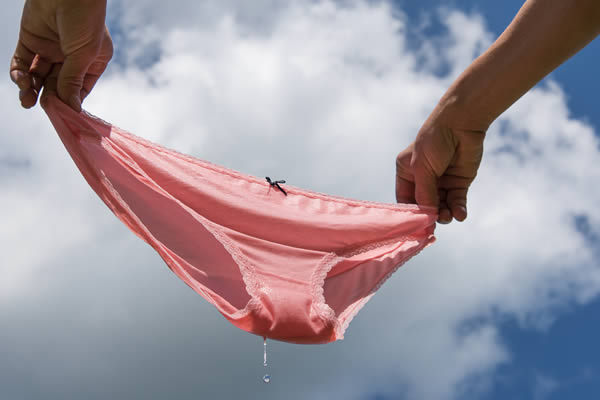November is Bladder Health Month, Which Means Preventing Urinary Incontinence!
Urinary incontinence is very common, affecting up to 1 in 3 women. Despite some common beliefs, leaking urine is not a normal part of aging and can be treated, especially with the help of a pelvic floor therapist. Today we’ll cover some common contributing factors that you can be mindful of to prevent urinary incontinence.
What is Urinary Incontinence?
Urinary incontinence refers to the loss of urine, out of your control. There is actually more than one kind of urinary incontinence: the two most common types of urinary incontinence that affect women are stress incontinence and urge incontinence (also called overactive bladder, or OAB). Treatments that help in preventing urinary incontinence depend on the diagnosis:
- Stress Incontinence: urine leaking with physical activity- sneezing, coughing, laughing, lifting, pushing/pulling, jumping.
- Urge Incontinence: urine leakage that is coupled with urgency to go- leaking while you’re in line for the toilet, leaking/urgency when you’re parking your car in the driveway, putting the key in the door, fumbling with your pants, etc.
- Mixed UI: a combination of stress and urge symptoms
What You Can Do to Start Preventing Urinary Incontinence
Many factors can contribute to urinary incontinence. If you have any concerns regarding your pelvic health, it is always best to get a thorough evaluation from your doctor and a pelvic floor therapist (licensed physical therapist that specializes in pelvic health).
Common factors that contribute to urinary incontinence:
- Having too many bladder irritants including alcohol, coffee, soda, citrus, tomatoes, chocolate, carbonated drinks, among others. Check out this list of common bladder irritants from John Hopkins Medical Center.
- Drinking too much water. Chugging a quart of water in one sitting may overwhelm your bladder and create a strong sense of urgency.
- Dehydration. On the flip side from over-hydration, you can leak if you’re dehydrated. Dehydration will cause your urine to be really concentrated, which will irritate the bladder and contribute to leakage. Golden rule of thumb is to drink 64 oz of water a day (or more if it is hot or humid out, or your activity demands increase) and drink smaller amounts of water at a time. Try sipping throughout the day from a water bottle, or having a half glass of water every hour.
- Medications. Including blood pressure drugs, heart medications, diuretics, muscle relaxants, antihistamines, sedatives and antidepressants can contribute to incontinence. If you are taking these medicines and develop issues with urination, see your doctor.
- Weight. Excessive body weight can add pressure on your bladder and pelvic floor, resulting in leakage. Maintaining a healthy weight with activities, diet, and exercise may help with leakage.
- Smoking.The nicotine in tobacco has been shown to irritate the muscle that controls the bladder (Wyman, Burgio, & Newman, 2009). Smokers are also likely to have a chronic cough which can create more pressure on the bladder and pelvic floor.
- Constipation. As we’ve written about in the past, straining with bowel movements can damage the pelvic floor. Exercising, drinking enough water and eating high-fiber foods, such as lentils, beans, and fresh vegetables and fruit, might help improve constipation.
- Weak pelvic floor muscles. Weakness in the pelvic floor can be due to the muscles being too tight or too weak and underactive. A pelvic floor therapist can help determine what is going on with your pelvic floor.
How Pelvic Floor Therapy Can Help
A pelvic floor therapist will provide you a thorough examination and help you figure out what overlapping issues are contributing to your urinary incontinence.
What Does Pelvic Floor Therapy Look Like?
The treatment modalities you will receive in pelvic floor therapy depend on your body and the issues present.
Some of the modalities used at Femina Physical Therapy for the treatment of urinary incontinence can include (but are not limited to):
- Bladder and bowel habits including lifestyle modifications like optimal fluid intake and constipation management
- Therapeutic exercise to strengthen the pelvic floor
- Biofeedback training with intravaginal sensors
- Electrical stimulation using the InTone device
- Manual therapy to treat connective tissue dysfunction and myofascial trigger points
- Visceral mobilization (gentle massage techniques that loosen internal adhesions and restore movement to the organs including the intestine, bladder, uterus, and ovaries) to reduce intra-abdominal pressure, improve motility, and organ function
- Internal pelvic manual therapy to treat sensitive tissues, muscle spasms, trigger points, and muscle guarding that can contribute to urgency, frequency, and leakage
- Training in self treatment techniques including correct form for pelvic floor strengthening and abdominal lymphatic massage
- Neuromuscular re-education and autogenic relaxation to reduce chronic muscle over-activity and improve parasympathetic nervous system function, including reducing bladder spasms
Preventing urinary incontinence is possible. Contact one of our 3 Los Angeles area offices for more information.
Resources
Lamerton, T. J., Torquati, L., & Brown, W. J. (2018). Overweight and obesity as major, modifiable risk factors for urinary incontinence in young to mid-aged women: a systematic review and meta-analysis. Obesity Reviews. doi:10.1111/obr.12756
John Hopkins Women’s Center for Pelvic Health. Bladder Irritants.
Mayo Clinic. Bladder control: Lifestyle strategies ease problems.
Wyman, J. F., Burgio, K. L., & Newman, D. K. (2009). Practical aspects of lifestyle modifications and behavioural interventions in the treatment of overactive bladder and urgency urinary incontinence. International Journal of Clinical Practice, 63(8), 1177–1191. doi:10.1111/j.1742-1241.2009.02078.x
**This information is for educational purposes only and is not intended to replace the advice of your doctor.

